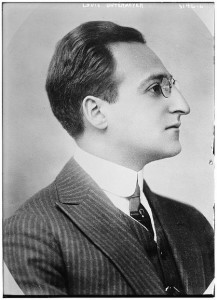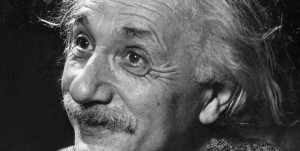
Abstract of paper to be published this summer, in The South Central Review.
Following the confirmation of Einstein’s theory of relativity in 1919, the mainstream and avant-garde press erupted with news about the theory, offering commentary that ranged from clear-sighted explanations to cartoons and jokes. Though critics have recognized the impact of the theory on modernist literature, few have attended to the mediating factor of these mainstream public narratives and their engagement by modernist writers. Among the most creative responses to relativity theory during this period is Louis Untermeyer’s understudied collection of parodic poetry, Rhyme and Relativity: An Anthology of Poetry Apostrophising the Theories of Einstein. Published in 1921, the same year as Einstein’s widely covered trip to the United States, it appeared in Vanity Fair and the little magazine, Broom. Written in the style of well-known poets, such

as Ezra Pound and Amy Lowell, each of the work’s eighteen poems takes some aspect of relativity theory as its subject. This paper offers a close reading of “Einstein Among the Coffee-Cups,” which is a parody of (mainly) T. S. Eliot’s “The Love Song of J. Alfred Prufrock.” This paper reveals how Untermeyer’s sophisticated and versatile use of relativity theory, popular culture, and modern poetic form shaped both the content and structure of Rhyme and Relativity, resulting in a humorous, but serious, response to modernist poets and popular culture.

You must be logged in to post a comment.